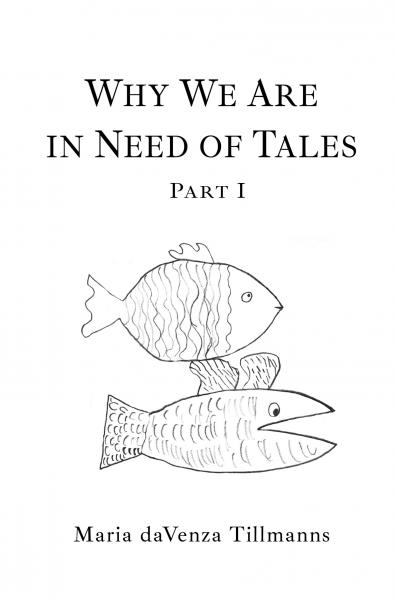
In Why We Are in Need of Tails, Huk and Tuk explain why reading tales to each other is so important.
In Why We Are in Need of Tales, Huk and Tuk explore intriguing questions that arise from their discussions of six different picture books written by Arnold Lobel and Leo Lionni.
Is something ever truly mine alone? How do we come to know what we don't know? What makes a friend a friend?
These and many more questions take us on a journey through the world of Huk and Tuk.
Doing philosophy with children inspired Maria daVenza Tillmanns to recreate the bonds of meaningful communication in the writing of her whimsical, playful stories. Philosophy should make us — children and adults — re-think what we think we know.
Also available in hardcover.
eBooks
Reviews
"Since evolution has ordered that we – ordinary people – live without tails, it is difficult for us to convey to the Other the full depth of our feelings and thoughts. We can be close, but at the same time we are always missing something. When we cannot connect with each other, we feel isolated and distanced from the Other. But the author of these magic books seems to know a remedy to fix it. Allegories, metaphors, images come to our aid, i.e. everything that fairy tales are based on. And understanding becomes possible. Allegory, imaginative vision is what connects us with invisible tails to our common invisible roots. Through this subtle subconscious connection, we feel unity with each other, because with these tails-fairy tales we are all rooted in nature and in culture."
—Sergey Borisov, “Philosophical Stories for Children and Adults”: Tillmanns, Maria daVenza (2020-2021), Why We Are in Need of Tales
Journal of Humanities Therapy, Humanities Institute, Kangwon National University, Korea 2022, vol.13-1, pp.159~168
https://doi.org/10.33252/jht.2022.6.13.1.159
ISSN 2765-2653(Online)
Read Sergey Borisov's book review of Why We Are in Need of Tails, published in Philosophy Now.

